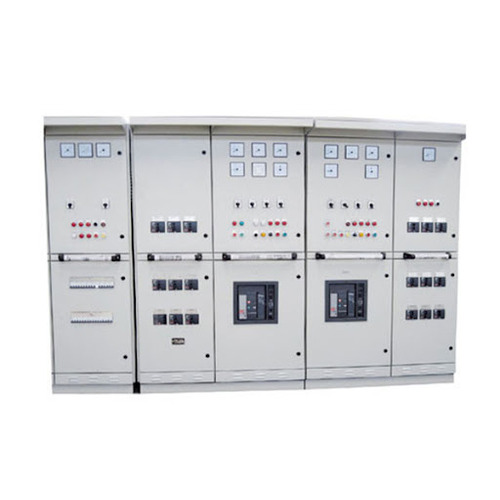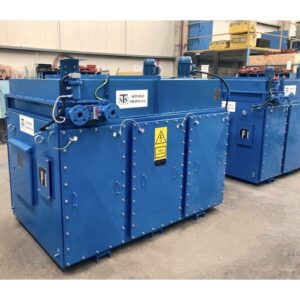Key Features of Switchboards
1. Design and Structure of Switchboards
Our marine switchboards are designed with a space-saving modular structure ideal for confined shipboard environments. The layout allows for organized access to control zones, breakers, and instrumentation, ensuring smooth power management in tough sea conditions.
2. Switchboards Material
Crafted from marine-grade steel or aluminum and finished with anti-corrosive coatings, these systems withstand humidity, salt exposure, and constant vibration. Internal components use high-grade, flame-retardant insulation materials that ensure long-term durability and safety.
3. Lifting Capacity of Switchboards
While not built for mechanical lifting, these units efficiently manage high electrical loads. They distribute power to critical systems such as propulsion, navigation, lighting, and auxiliary machinery with stability and protection against overloads.
4. Installation and Integration of Switchboards
Engineered for flexible installation, the system integrates seamlessly into both new builds and retrofits. Configurable mounting and cable entry points simplify placement, while the design supports easy coordination with onboard electrical networks.
5. Safety and Control of Switchboards
These marine systems prioritize safety through integrated circuit breakers, fault indicators, emergency stop mechanisms, and smart monitoring. Real-time diagnostics enhance response to issues, reducing risk and ensuring operational security at sea.
6. Durability and Maintenance of Switchboards
The enclosures are sealed against moisture and dust, requiring minimal upkeep. Access to internal parts is straightforward, enabling faster maintenance and inspection cycles without interrupting critical vessel operations.
7. Versatility
Suitable for a wide range of vessels, the units support both AC and DC networks. From main distribution panels to emergency or auxiliary systems, their design adapts to different electrical configurations and power demands.
8. Compliance and Standards
All components are built to comply with international maritime standards, including IEC, IMO, and approvals from DNV, ABS, and Lloyd’s Register. This ensures safe operation and full classification society compliance for marine use.






